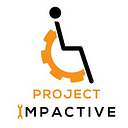COVID-19 Vaccination DOs and DON’Ts
DO fill out any disability-specific accommodations on the NHS appointment booking form. Certain vaccination centers may be more accessible than others, and the NHS will send you to the site best suited to your needs.
DO follow all the instructions of the volunteers and workers at the vaccination center. Most people at the center receiving vaccines are high-risk (or live/work with high-risk individuals), so following social distancing is vital to keep everyone safe.
DO have your NHS number and appointment booking reference number on hand, and have an emergency contact ready to give.
DO allow an hour for your appointment. I was in and out of the Crick in 40 minutes, but different days may be quicker or slower.
DO bring something to keep you occupied. There’s a fair bit of sitting around and waiting in the center.
DO be ready to answer questions about underlying health conditions and allergies.
DO have a thermometer, plenty of fluids, and some ibuprofen or paracetamol waiting at home.
DON’T get impatient. I spent over half my time at the Crick in various waiting areas, or repeatedly answering the same set of questions. There are a lot of people who need vaccines, and the workers at the center need to verify people’s identity and consent at every step of the way.
DON’T make plans for the day after your vaccine. Some people have low fever and flu-like symptoms that keep them in bed all day. It’s difficult to predict how your immune system will react, so (if possible) plan to give yourself a relaxing day.
DON’T hesitate to call 111 if your side effects persist for several days, if your fever is extremely high, or if you can’t keep down food or fluids.
DON’T panic about blood clots if you receive AstraZeneca. Of 20 million doses given, only 25 people have reported blood clots afterward (per the European Medicines Agency Safety Committee on 18 March). To compare, the blood clot rate among people on hormonal birth control pills is 4–16 per 10,000 per year (per a 2011 University of Copenhagen study).
Carina Graham
Writer
Project Impactive
